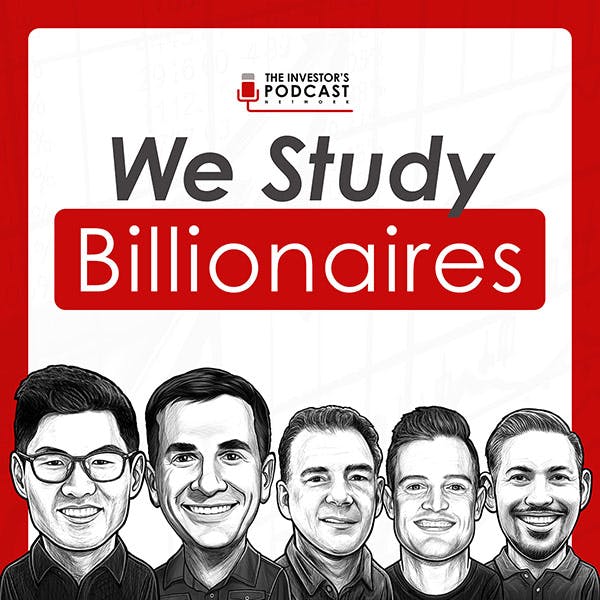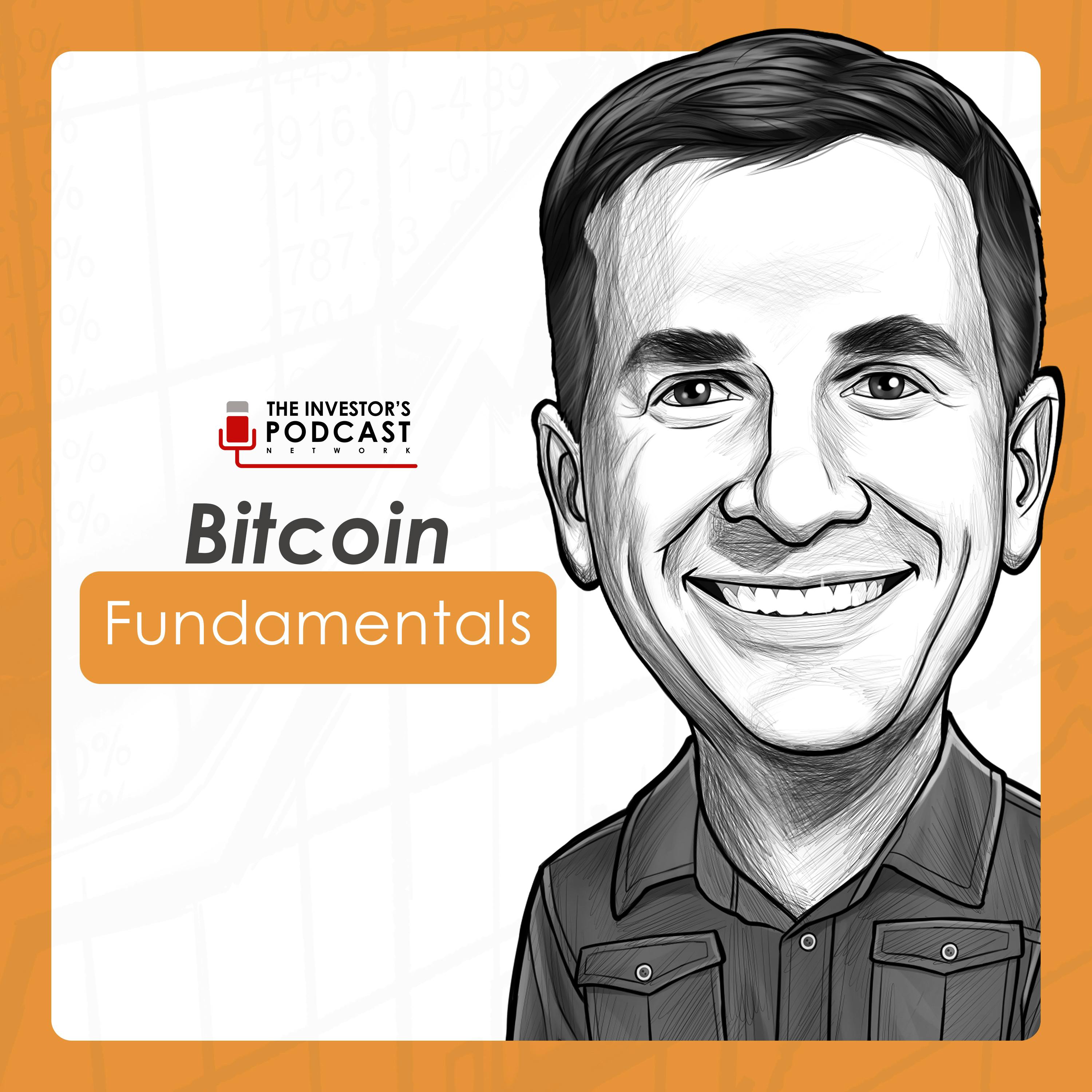
October 13, 2024 • 1hr 23min
TIP668: What I learned About Investing w/ Stig Brodersen
We Study Billionaires - The Investor’s Podcast Network

Key Takeaways
- Be careful who you listen to about investing - Focus on your own goals and find investors with similar strategies to learn from
- Don't screen for stocks - Screening can force action into low quality businesses outside your circle of competence
- Your circle of competence is likely smaller than you think - It takes thousands of hours in an industry to truly understand it
- Read investing books, but study real businesses - There are diminishing returns to only reading investing theory books
- Set up guardrails for yourself - Understand your biases and set rules to protect yourself from yourself
- Don't look at your track record too often - Looking quarterly can lead to short-term thinking
- Don't only have public equities in your portfolio - Diversify across asset classes for protection
- Run your track record 1000 times - Consider how your strategy would perform across many scenarios
- Be thoughtful about position sizing - Have a framework for initial positions and scaling up
- Understand the implicit assumptions in advice - Consider the background and circumstances of those giving advice
Introduction
In this episode, Stig Brodersen reflects on 10 key lessons he has learned about investing since starting The Investor's Podcast in 2014. He shares insights on developing an investment strategy, managing biases, portfolio construction, and more. In the second segment, Clay Finck joins to discuss his top investing lessons as well.
Stig provides context that when he started investing and podcasting about it, he had an inflated view of his abilities and thought he could be the next Warren Buffett. Over the past decade, he has been humbled by the markets and gained wisdom on developing a more thoughtful, personalized approach to investing.
Topics Discussed
Be Careful Who You Listen To (2:12)
Stig emphasizes the importance of being selective about whose investing advice you follow. He recommends:
- Focus on your own goals rather than comparing yourself to others
- Find investors with similar strategies and holding periods to learn from
- Look for those with public, audited track records
- Pay attention to how others define their track record (e.g. including private investments)
- Remember even great investors can often be wrong
He notes: "The better track record they have, the more I pay attention to what they were saying. Now, this doesn't mean that, say a 10% CAGR investor can't be better than a 15% investor. It might simply mean that he's unlucky. But you have to go over the odds and have an idea of how they achieved that track record."
Don't Screen for Stocks (7:45)
Stig advises against relying heavily on stock screeners, as they can lead to investing in low quality businesses outside your circle of competence. Instead, he recommends:
- Look at portfolios of investors you respect as a starting point
- Reverse engineer their process and thesis
- Focus on businesses within your circle of competence
Your Circle of Competence is Likely Smaller Than You Think (8:29)
Stig shares that his circle of competence has shrunk over time as he's realized how much depth of knowledge is required to truly understand an industry or business. Key points:
- It takes thousands of hours studying an industry to develop real competence
- Reading public filings is not enough - you need deep industry experience
- His portfolio is focused on just 3 areas he's spent significant time in
- Be honest about what you truly understand vs. what you think you understand
He notes: "I come to realize that my track record has shown that unless I spent, I'm really sorry to say, thousands of hours in a specific industry, I've triple just not been very successful."
Read Investing Books, But Study Real Businesses (11:31)
While Stig still reads investing books, he's found diminishing returns compared to studying real businesses:
- There's conflicting advice across investing books
- Reading 10-Ks and studying real businesses is more valuable
- Read business books about specific companies
- Study businesses you find fascinating, not just potential investments
He reflects: "I still enjoy reading. It's not because I have any regrets of that, but I do think I have been inefficient in my reading and at least from an investing perspective, I would probably benefited more if I spent that starting real businesses instead."
Set Up Guardrails for Yourself (16:05)
Stig emphasizes the importance of understanding your own biases and setting up rules to protect yourself from yourself:
- Understand how you're wired and set up rules accordingly
- Example: Investing in a fund that can only be redeemed annually to force inactivity
- Example: Capping initial position sizes at 10% of portfolio
- Set up guardrails that allow your biases to work for you instead of against you
He notes: "I want to set up guardrails to protect myself from myself and we all unique creatures, and I can't tell you how you should set up guardrails, but I do know it's very hard to change the way you are wired."
Don't Look at Your Track Record Too Often (19:36)
Stig recommends not looking at your investment track record too frequently:
- Looking quarterly can lead to short-term thinking
- He only looked at his full track record after 10 years
- Aim to look annually at most
- Balance between knowing performance and avoiding irrational moves
He shares: "I certainly don't recommend that you only look at your track record once a decade, and I think I've taken it too far. But I want to tell you why. When I started studying Warren Buffett, it became very clear to me that I needed to think very long term and looking at my results every quarter would work against me."
Don't Only Have Public Equities in Your Portfolio (20:17)
Stig advises diversifying beyond just public stocks:
- 7 of 10 largest economies in 1900 had stock markets wiped out in 20th century
- Stock markets can close for prolonged periods in crises
- He has ~60% of liquid assets in public equities
- Diversify across asset classes and geographies for protection
Run Your Track Record 1000 Times (31:23)
Stig recommends mentally running your investment strategy through 1000 scenarios:
- Avoid resulting - judging decisions solely on outcomes
- Consider how often your strategy would outperform across many scenarios
- Think about mortality risk and family financial security
- Focus on process over results
He reflects: "Whenever you think about running your portfolio 1000 times, you start to respect the process more than the results you have or have not achieved."
Position Sizing Framework (32:53)
Stig shares his framework for position sizing:
- 1% starter positions to avoid confirmation bias
- 1-10% for high conviction ideas at attractive valuations
- 10%+ for highest conviction ideas, let winners run
- Cap initial positions at 10% to manage risk
He notes this approach works for him but may not be right for everyone based on risk tolerance and goals.
Understand Implicit Assumptions in Advice (35:59)
Stig emphasizes the importance of understanding the background and circumstances of those giving investing advice:
- Consider their age, wealth, family situation, etc.
- Advice that works for one person may not apply to you
- Understand your own circumstances and goals
- No one approach works for everyone
He reflects: "My point is that my circumstances are different not only from Guy, but from you and everyone else listening to this podcast. I have a bigger part of my net worth in private equity than most and I see the world through a different lens, not a better lens, but a different lens because I had different life experiences and I'm just wired differently and we all unique that way and have to lean into it the best possible way for ourselves."
Clay's Top Investing Lessons (45:43)
Clay Finck shares his top 3 investing lessons:
- Find an approach that suits your style and temperament - Don't be afraid to index while learning
- Be patient - Investing is a long journey, don't rush into positions
- Be humble - The world is more uncertain than we think, be open to new ideas
On humility, Clay notes: "Remaining humble can really help you keep an open mind, take in new ideas, and be willing to admit when you're wrong. And if you aren't willing to consider these new ideas, then you won't evolve as an investor."
Conclusion
Stig concludes by emphasizing that investing is a lifelong journey of learning. He encourages listeners to read widely, study real businesses deeply, understand their own psychology, and develop a personalized approach aligned with their goals and circumstances. While there's no single right way to invest, focusing on process over outcomes and continuous improvement can lead to success over time.
The episode provides a thoughtful reflection on lessons learned over a decade of investing and podcasting about markets. Stig's insights on developing competence, managing biases, portfolio construction, and more offer valuable food for thought for investors at any stage of their journey. The overarching themes of humility, continuous learning, and personalization of approach stand out as key takeaways.









